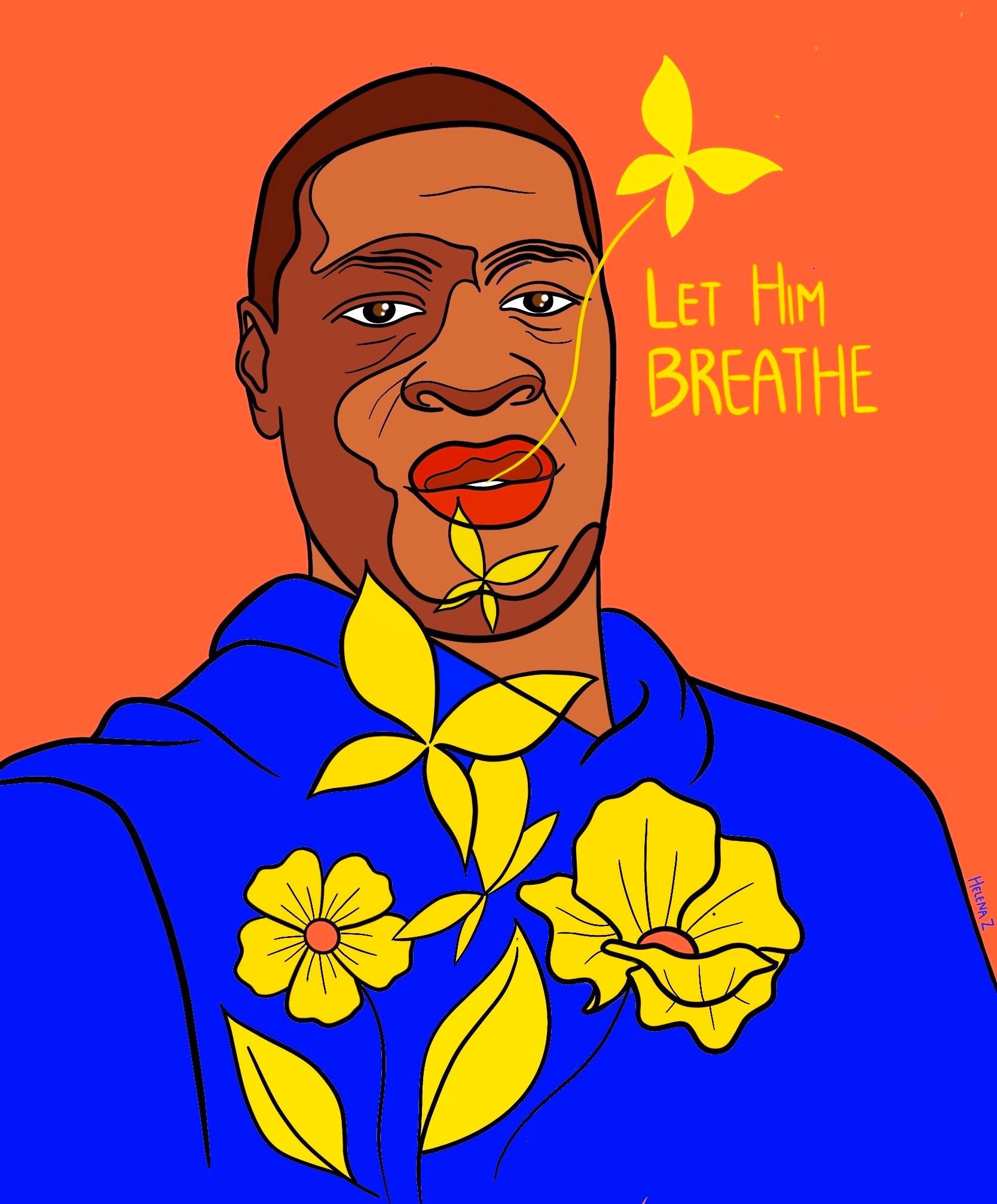CW: Anti-Black racial violence and police brutality
These past few weeks have highlighted the corruption of our law enforcement and prison-industrial complex, but the system was never designed to protect Black folks. The 13th Amendment abolished slavery “except as a punishment for a crime.” This subtle exception was used as a loophole for Southern whites, opening a new door of imprisonment and forced labor. Our modern-day prison and policing system are built on racism. The land of the free stole from the indigenous and exploited Black bodies. It was designed to oppress.
Now, in 2020, Black Lives Matter protestors are assaulted and tear-gassed for protesting the racist murder of an innocent man while MAGA protestors flaunt the freedom to wander inside state capitols with AR-15s, protected by their blatant privilege. White supremacy is more than the hate crimes and bloody horrors of the past. It has evolved into silent manifestations of violence and terror: self-segregating neighborhoods and schools, mass incarceration, racial profiling, colorblindness, hiring discrimination, anti-immigration policies, inequitable healthcare, police brutality, paternalism, bootstrap theory and more.
In the past few days, many have donated to charities while also sheltering in place. Social media gifted us with the ability to raise funds and support local organizations, such as the Minnesota Freedom Fund, North Star Health Collective and the George Floyd Memorial Fund. However, many others have remained completely silent.
Throughout history, movements of radical change have been led by Black activists, and Black trans women have been in the forefront of these revolutions. It is important to remember that Black queer resistance carved new paths of liberation for many marginalized groups. Yet we rarely pay our respects for their emotional and physical labor. In addition to the trauma and mourning that comes with ongoing news of systemic brutality, the act of organizing, educating and resisting society’s oppression comes with immense spiritual pain. As allies, it is our responsibility to take on this role and lessen the burden carried by the Black community. It is our job to learn about individual and structural racism within ourselves and our communities.
Non-Black people must learn to listen — we have the responsibility of confronting anti-Blackness, learning ways to combat racism and taking action during times of injustices. For example, Asian and Latinx people are quick to adopt Black music, dances and aesthetics, but so many are slow to speak out against the abuse of Black people. This has to change.
The Asian American community in particular needs to support the Black Lives Matter movement. As an Asian American myself, I have noticed my community’s desire to assimilate and protect the status quo, even if it subjects us to white supremacy. Far too many members of Asian communities have been accomplices to anti-Black violence. Familiar names include Bhagat Singh Thind, Soon Ja Du, Peter Liang and, most recently, Tou Thao (the police officer who stood by as Derek Chauvin suffocated George Floyd). This is a problem within the Asian American narrative. However, after confronting this uncomfortable but necessary realization, we have the ability to fight against anti-Blackness in our own communities.
There are numerous ways to support Black movements as an ally. Resist calling the cops. Challenge the model minority myth. Exceptionalism was used to perpetuate the bootstrap theory and oppress low-income, Black populations. Donate to organizations that are fighting current injustices (see below). Stop appropriating African American vernacular. Educate your family and community. Refrain from reposting violent images of police brutality. Instead, share photos that celebrate the victims’ lives. Check in on your Black friends’ well-being, especially during times of turmoil and violence.
Solidarity is necessary. It must be rooted in an intense desire to see radical transformations, to support the loud and raging anger of the oppressed and to sacrifice your privilege for a cause. As more non-Black allies realize the weight of their actions, we can begin to fight against racism — internally and on a larger scale.
Read and educate:
– Black History Library by Charles Preston (includes pdfs and ebooks on SNCC, the Black Panther Party, Harriet Tubman, Zora Neale Hurston, Frantz Fanon, Malcolm X and many others)
– BLACK WOMEN, BOOKS AND THE QUEST FOR LIBERATION: A READING LIST
Donate:
– Louisville Community Bail Fund
– Brooklyn Community Bail Fund
– National Resource List (comprehensive information on bail funds and mutual aid)
Call:
Mayor’s Office: 612-673-2100
MPD Direct Line: 612-578-4322
MPD Internal Affairs: 612-673-3074
MPLS Dept. Civil Rights: 612-673-3012
Email:
Contact Lora Supandi at lsupandi ‘at’ stanford.edu.
The Daily is committed to publishing a diversity of op-eds and letters to the editor. We’d love to hear your thoughts. Email letters to the editor to [email protected] and op-ed submissions to [email protected].
Follow The Daily on Facebook, Twitter and Instagram.
